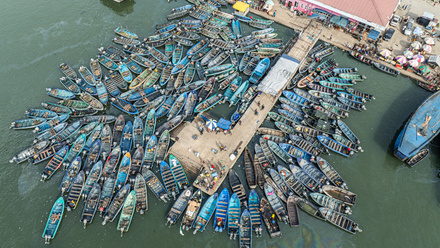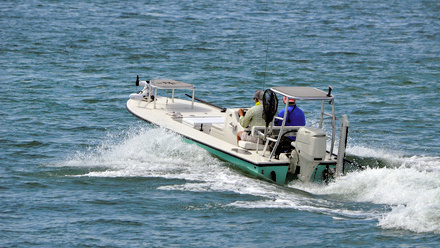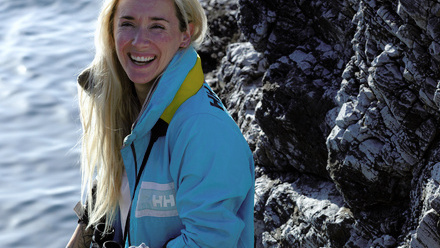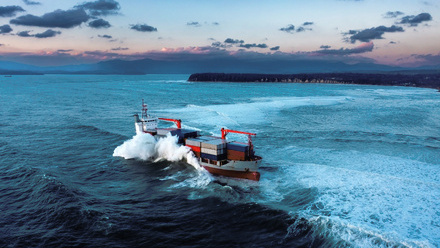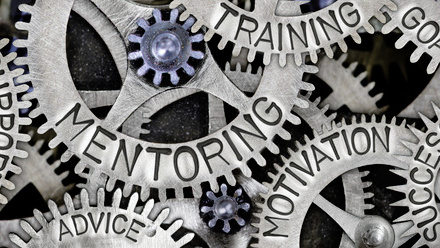Filling global gaps in marine education
Iain MacIntyre speaks to Commonwealth Secretariat head of oceans and natural resources, Dr Nicholas Hardman-Mountford, about global shortfalls in marine and maritime education, improving awareness and attracting more young people to the industry.
What is the level of marine/maritime education being attained globally – are there notable differences between nationalities?
Ocean literacy in general, and specifically education on ocean sciences, maritime policy and ocean-based economy sectors, such as shipping, port logistics, fisheries and aquaculture, varies massively between countries and regions. In the Maldives, marine sciences are included as part of the high school curriculum nationally – which is not seen even in other developed economies.
In most countries, training opportunities can be few and far between. Adequate training and upskilling are essential for countries to effectively respond to emerging trends, changing technologies and new developments in international maritime law and policy, and the Commonwealth fully supports this through its work under the Commonwealth Blue Charter.
Is there frustration within the industry about a lack of marine/maritime education opportunities?
There is currently a high demand for vocational training in maritime sectors and in ocean governance, policy and maritime law from government officials. To help meet demand, we have been working with Commonwealth countries; sponsoring officials to undertake courses at specialist centres, such as the International Ocean Institute, as well as training officials in-country on, for example, port safety and standards.
The Commonwealth Blue Charter has developed a number of bespoke training courses to support government officials – over the past four years we have trained more than 500 officials in these areas.
The Commonwealth Secretariat has also launched a public database of training opportunities to help marine professionals in Commonwealth member countries to access crucial knowledge products, update their skills and keep up with the latest trends.
Has understanding of the importance of our oceans gotten better or worse in recent years?
I think awareness of the importance of ocean governance and sustainable blue economies is growing, including the opportunities for the workforce in small island developing states and coastal developing countries.
Globally, there is an increasing recognition of the undeniable importance of the global ocean economy, which was valued conservatively at US$1.5 trillion in 2010 and is expected to double in value by 2030, according to the OECD. Many Commonwealth member countries – 49 of which border the ocean out of a total 56 – understand the need to transition this growing ocean economy towards a sustainable blue economy. We have supported them by undertaking rapid assessments for governments of their readiness to transition to a sustainable blue economy.
What changes would you like to see?
An expansion of training opportunities, particularly for young people, is vital to open new avenues for career development within the sustainable blue economy transition and provide the skills needed to enable this transition. Addressing gender equity issues within ocean sectors is also essential.
Improving education: what’s being done
Dr Hardman-Mountford explains what the Commonwealth Secretariat is doing to improve marine and maritime training opportunities in the Commonwealth and beyond.
- “In Antigua and Barbuda, we are working with the University of West Indies, the Association of Commonwealth Universities and the government to establish a Centre of Excellence in Oceanography and the Blue Economy (COBE). The strategic plan for the COBE includes vocational training for maritime economy sectors.
- “We have also joined up with partners to deliver educational programmes covering a range of ocean-related topics, such as the Blue Charter Fellowships, delivered in partnership with the Association of Commonwealth Universities, the Hack the Planet hackathon in collaboration with the Satellite Applications Catapult and industry, and other training sessions organised by the Secretariat’s technical experts.
- “There are also a number of specialist university departments around the Commonwealth that provide training in these areas, such as the Blue Economy Research Institute (BERI) in Seychelles. Our sister organisation, the Commonwealth of Learning (COL), has worked with BERI to produce a Blue Economy MOOC (Massive Open Online Course).
- “We are continually working with our member governments to understand their training needs and deliver courses that address these. Further to the Commonwealth examples that I’ve mentioned, our partners at the IMO support the International Maritime Law Institute (IMLI) in Malta and the World Maritime University (WMU) in Sweden, and also work closely with the International Ocean Institute (IOI) based in both Malta and Canada.”
As head of oceans and natural resources at the Commonwealth Secretariat, Dr Hardman-Mountford leads the Commonwealth Blue Charter initiative and a technical advisory team working on ocean governance and sustainable natural resource development projects in Commonwealth countries. He has published more than 100 research papers, book chapters, articles and technical reports.

